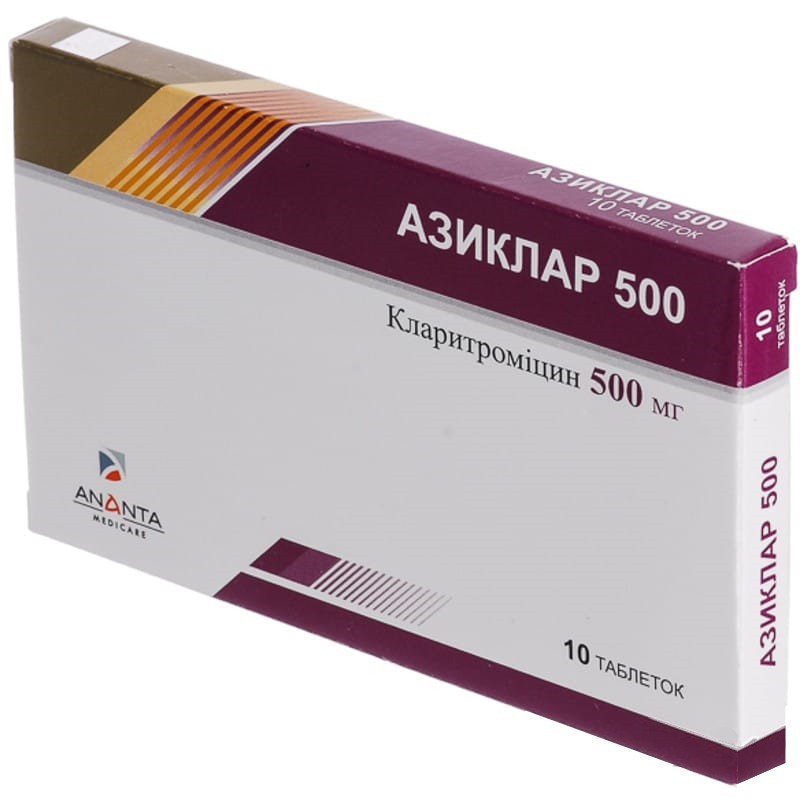



 Secure and encrypted payment processing
Secure and encrypted payment processing We ship to over 40 countries including the USA, UK, Europe, Australia and Japan
We ship to over 40 countries including the USA, UK, Europe, Australia and Japan Guaranteed refund or reship if you haven't received your order
Guaranteed refund or reship if you haven't received your orderAziclar tablets are indicated in the treatment of infections caused by microorganisms sensitive to clarithromycin:
Active ingredient: 1 film-coated tablet contains clarithromycin - 500 mg.
Excipients: lactose, corn starch, croscarmellose sodium, magnesium stearate, microcrystalline cellulose, talc, sodium lauryl sulfate, film coating (hydroxypropyl methyl cellulose, tartrazine (E 102), polyethylene glycol).
Tablets should be taken whole (do not grind, do not chew), washed down with liquid. Food practically does not affect the absorption of the drug, but can slightly slow down this process.
For adults and children over 12 years of age, the recommended dose is 250 mg of clarithromycin every 12 hours, in severe infections, the dose can be increased to 500 mg every 12 hours.
Usually the course of treatment is 6-14 days. The duration of treatment depends on the course of the disease and is determined by the doctor individually for each patient.
The safety of the drug during pregnancy and lactation has not been established. Based on the results obtained in studies on mice, rats, rabbits and monkeys, the possibility of a harmful effect on the development of the embryo and fetus cannot be ruled out. The drug should not be used during pregnancy without a careful assessment of the benefit / risk ratio.
Clarithromycin is excreted in breast milk.
The drug is used in children aged 12 years. The use of clarithromycin tablets for children under 12 years of age has not been studied. Children of this age use the drug in the form of a suspension.
No data on the effect. However, before driving vehicles and other mechanisms, it is necessary to take into account the possible occurrence of adverse reactions from the nervous system, such as cramps, dizziness, hallucinations, confusion, disorientation.
Symptoms An overdose of clarithromycin can lead to symptoms of the gastrointestinal tract. One patient with a history of bipolar psychosis who took 8 grams of clarithromycin developed mental status disorders, paranoid behavior, hypokalemia, and hypoxemia.
Treatment. Adverse reactions accompanying overdoses should be treated with immediate gastric lavage and symptomatic therapy. As with other macrolides, it is unlikely that hemodialysis or peritoneal dialysis significantly changes serum clarithromycin levels.
Common and common adverse reactions in the treatment of clarithromycin in adults and children are abdominal pain, diarrhea, nausea, vomiting and a perversion of taste.These adverse reactions are usually mild and consistent with the known macrolide antibiotic safety profile.
The use of the following drugs is strictly contraindicated due to the possible development of severe consequences of the interaction.
The following are medicines whose effect on the concentration of clarithromycin in the blood is known or suspected, therefore, a change in the dose of clarithromycin or the use of alternative therapy may be required.
Store at a temperature not exceeding 30 ° C in the original packaging.
Keep out of the reach of children.
Shelf life is 3 years.